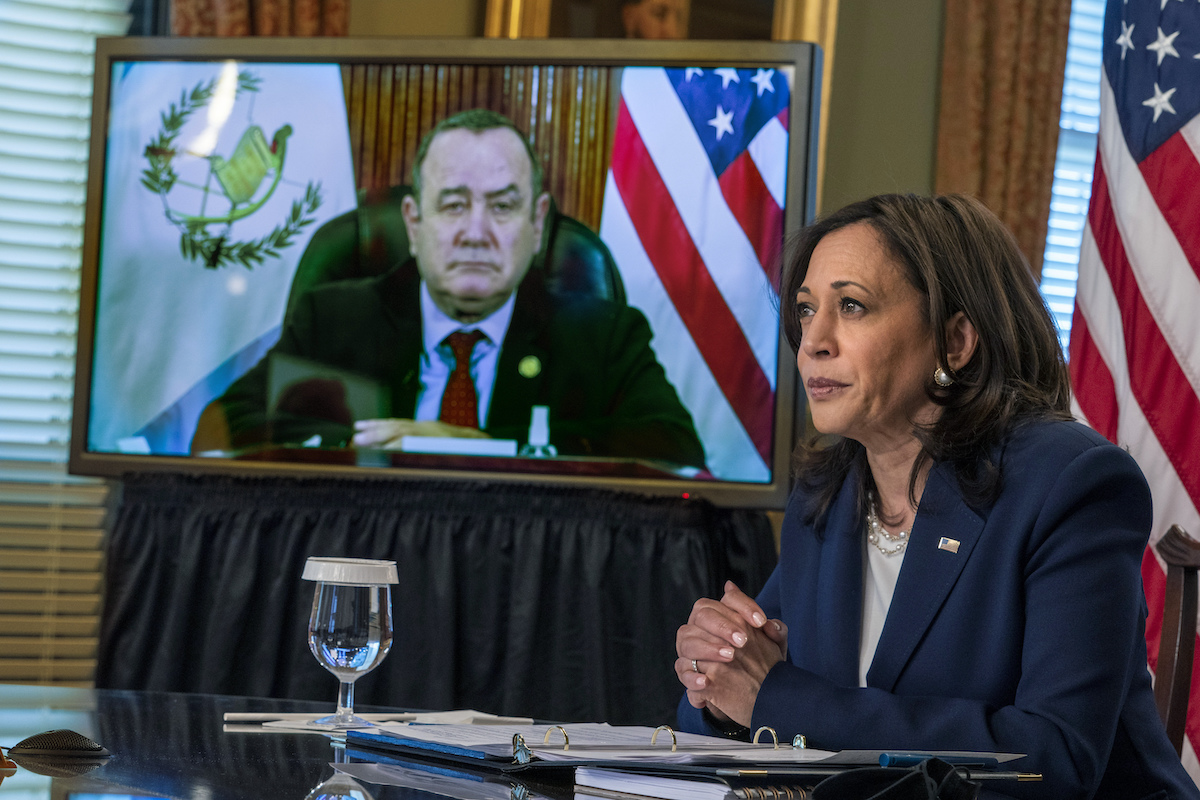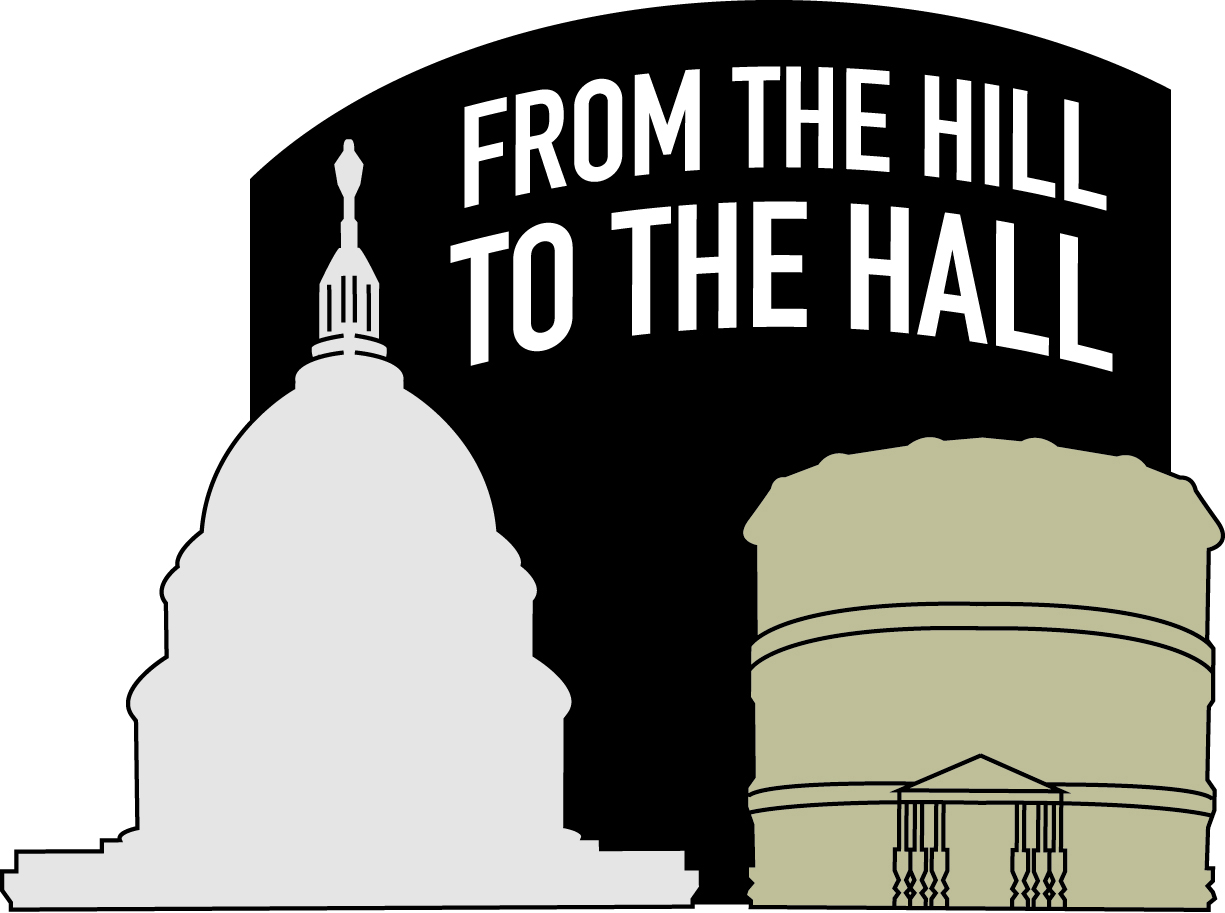CW: Death, rape and sexual assault, child abuse
United States Vice President Kamala Harris hosted a virtual meeting with Guatemalan President Alejandro Giammattei on April 26—a prelude to the vice president’s upcoming visit to the region in June. This meeting represented some of the first steps in the Biden administration’s plans to tackle immigration reform in a more holistic fashion than prior eras. But it is important to remember that the emigration crisis in Latin America is the consequence of the imperialist, anti-leftist foreign policy strategy the U.S. employed in the 20th century. Failing to acknowledge that would be a disservice to the historical record and to the Guatemalan people.
Rather than simply building a wall and hoping things play out for the best amongst our neighbors to the south, the Biden administration has instead sought to address the “root causes” of emigration in the region, a refreshing proposal in light of the past four years of aimless Latin American foreign policy.
However, it is imperative we remind ourselves that in order to effectively address these root causes, the U.S. will need to have some very uncomfortable conversations first. During the April 26 meeting, Harris listed a few of these key root causes: “a lack of good governance, violence against women, indigenous people, LGBTQ people, and Afro-descendants.”
While there should be little disagreement that these factors have been influential to migration patterns in the region, presenting these issues as the root causes of Guatemala’s emigration problem only serves to obfuscate the true story.
Along with Iran, Guatemala represents the quintessential case study in America’s historical failure to recognize the long-term ramifications of its anti-leftist regime-change rampage of the 1950s. While it’s difficult to guarantee that without U.S. interference in the region, Guatemala would be a shining example of utopia today, it is nonetheless important that America’s culpability in Guatemala’s 1954 coup be recognized. The consequences of that coup have certainly served to shape Guatemala’s current social, political and economic challenges being wrestled with today.
Elected in 1951, Jacobo Árbenz was only Guatemala’s second democratically-elected president before he was ousted from power in 1954 by a CIA-backed paramilitary group led by Fort Leavenworth-trained Carlos Castillo Armas. Much like the successful 1953 overthrow of the democratically-elected Mosaddegh government in Iran, the 1954 coup in Guatemala was the brainchild of then-CIA director Allen Dulles, infamously aided by his brother, U.S. Secretary of State John Foster Dulles.
In Árbenz’s inaugural address, the Guatemalan president stated it was his intent to pull the nation from “a backward country with a predominantly feudal economy into a modern capitalist state.” Árbenz was certainly no communist, but his platform of aggressive agrarian reform was seen as a threat to U.S. commercial interests in the region.
According to Richard H. Immerman in his book The CIA in Guatemala, the United Fruit Company, now rebranded under the Chiquita label, had effectively monopolized Guatemala’s banana industry, controlling more than 550,000 acres of land upon which only 15% was actively utilized for cultivation. Naturally, the United Fruit Company became one of the prime targets of Arbenz’s agrarian reform program, eventually leading to the government expropriation of over 400,000 acres of the company’s unutilized lands at the tax-assessed value of the properties.
Over 23,000 landless Guatemalans, many of which were indigenous farmers, would become the recipients of the divvied-up lands per Decree 900, a strategy the Arbenz administration had employed to help foster greater equity for local farmers.
Consequently, the U.S. had little patience for this kind of behavior and opted to forcibly install a brutal dictatorship hellbent on exterminating leftist sympathizers and pro-labor interest groups. This regime also reversed the expropriation of the lands granted to Guatemalan farmers under Decree 900. Needless to say, the Dulles brothers’ crusade to defend U.S. commercial interests came at the expense of the populations in most dire need of a helping hand: subsistence farmers and indigenous peoples.
In the decades following Castillo Armas’ authoritarian takeover of the Guatemalan government, a 36-year civil war was waged. Through the tail end of the 20th century, the country would become battered by violent conflict, sporadic military rule, political executions and a genocide of the indigenous Maya people.
The level of cruelty and strife that afflicted Guatemala post-1954 coup is succinctly put by the testimony of Human Rights Watch before the Congressional Human Rights Caucus in 2003: “In 1982, in the village of Las Dos Erres, Guatemalan soldiers killed over 160 civilians, burying some alive in the village well, killing infants by slamming their heads against walls, keeping young women alive to be raped over the course of three days.” This incident merely reflects the tip of the iceberg, however—it’s just one of over 400 massacres detailed in a UN-sponsored truth commission.
In context, a straight line can be drawn from the ramifications of the United States’ 1954 coup against the Árbenz government to the current state of the Guatemalan nation. As further stated in the 2003 Human Rights Watch testimony, “The armed conflict left a country awash in weapons and people accustomed to using them; it left widows, orphans, and whole communities traumatized, and the general population deeply distrustful of public authority; and it left a large number of human rights violators determined to escape justice for their crimes.”
Today, the U.S. government is continually reckoning with the consequences of its prior actions. From the fear of Iranian nuclear armament, to asylees fleeing Central America to the southern border, much of our current political conflicts and headaches have been exacerbated by cruel and myopic foreign policy. The Biden administration needs to acknowledge this moving forward.
Biden’s proposal to address the root causes of emigration in Latin America is absolutely a worthy endeavor that should be applauded, but the nation’s dark ties to much of the region’s current unstable paradigm has to be considered when we approach these multilateral conversations. To avoid doing so would be an affront to those innocents left destitute or dead due to the greed and cruelty of ruling-class Americans.
As Harris embarks on her diplomatic trip to meet with Giammattei in June, it’s important to keep in mind that the work cut out for her, such as bolstering public health and education efforts, first begun decades ago under the administrations of Guatemalan presidents Juan José Arévalo and Jacobo Árbenz. Ultimately, it was the U.S. that halted the progress made to create a better Guatemala for all. We must not forget that.






